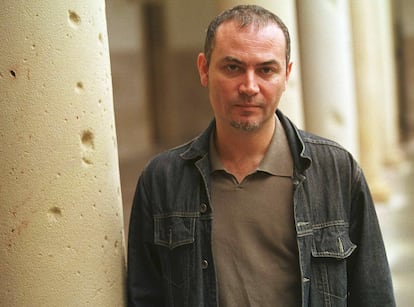The Asturian writer Xuan Bello has died on Tuesday at age 60 unexpectedly, the newspaper reported New Spain. Bello, born in 1965 in the town of Paniceiros, in the Council of Tineo, narrator and poet, was one of the great names of Asturian (and Asturian) literature of this century. Universal History of Paniceiros, Of 2002, a beautiful collection of small texts, intimate, poetic and reflective, between memory and fantastic fabulation, was the work that gave the most projection in the Spanish landscape. In it, it made it clear that, despite starting from the local, in this case of its little great language and its small major town, 42 houses, auged in the mountains, it was able to connect with universal culture.
“It was the banner of his generation, that which at the beginning of the eighties proposed to dignify the literature in Asturian language and achieved it, demonstrating that those old words were still valid for contemporary expression,” says writer Miguel Barrero, director of the Black Week of Xixón, where Bello had participated only a few weeks ago. It refers to the second generation of the Surdimientu (resurgence in Spanish), the recovery movement of the Asturian language that was launched after Franco’s death and decades of contempt. “He was one of those writers who make country. There is one Asturias before and another after Xuan Bello. But he was also one of the greats of Spanish literature,” recalls him the critic and poet José Luis García Martín, in whose Ovetense gathering they grew and made a good part of the authors of that generation and many others.
In that fifth he shared time and letters with other writers, such as Berta Piñán or Antón García, who, in effect, recovered the Asturian language, traditionally linked to the rural, to apply it to the life of the contemporary city, and more focused on literary creation than in political militancy, unlike their predecessors. “I was tired of listening that we were talking badly and decided to start a cultural process of dignification,” said Bello in the presentation in Madrid of his best known work, in 2002.
“I find it very difficult to think about Xuan as a writer now, because it was my best friends, and according to him, friendship understood is as if a brother had gone,” said writer Martín López-Vega, who will soon occupy the position of director of the Cervantes de Manchester Institute. “It is precisely that idea of friendship that I had with the readers, and that is what a special writer did to him, he entangled you in his world, he invented … he was able to make everything that happened to him through the imagination, everything he read, everything they told him, he ended up related. Of few writers you can say that they would raise a world … and in this case the world that he raised was his own village,” Paniceiros.
And History… said Bello, was “a childhood treaty” in which he included oral stories, childhood memories, readings, poems and stories; Memory barracks (which continued History…) “It was a treaty of adolescence and first youth.” While in The hidden story, end of that trilogy, there was “A reflection from maturity ”, in his own words. Bello had started very young in literature. In 1982, with 16 years, he published his first book of poems, Nel Cuartu Mariellu. To which they followed The Llibru de les Asis (1988), The nomes of the Earth (1991), The light comes from the y The secret roads (1996). In 1999 he published a bilingual anthology (Asturian-Castilian) of his poetry with the title of Lost life. And in 2009 his poetic compilation was launched, Both worlds. Poetry 1988-2009. His poetry is elegiac tone, with a special love for the passage of time, which he referred to: “The past is a foreign country, of barbarian customs, which we scarcely understand; an uncomfortable place.”
The president of the Principality, Adrián Barbón, has published this post on the social network X (originally in Asturian language): “Still stunned by the death of Xuan Bello, I barely have the strength to write a few words that are not comfort, but crying. Asturias loses one of his best children, lover of his languages, culture and traditions. Exceptional writer and extraordinary person. We want you”.
In addition to his literary activity, Bello exercised as a columnist in the Asturian press (he directed the weekly in Asturian The news), He was a member of the Academy of the Asturian Llingu Background keyto great names of culture, set at the Niemeyer Center in Avilés and broadcast on Asturian regional television, TPA. One of his last projects was to stand up, with Pablo Fidalgo Lareo, the La Favorita Festival, in Luarca.
On the use of the Asturian in his books and in his life, he had said: “You are consciously dying to this language. I speak Spanish, and that nobody can take it away. But I want to talk to my daughter and my grandfather in Asturian, and that should not take it out either. When you love your tongue, you not only love your tongue, but you love all others. Actually, what is a lot of passion for the world.”

